Both systems generate language sequentially, and the smoothness or choppiness of that generation is a direct, observable measure of the ambiguity of the task and the resources required to resolve it.
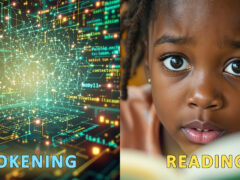

Both systems generate language sequentially, and the smoothness or choppiness of that generation is a direct, observable measure of the ambiguity of the task and the resources required to resolve it.
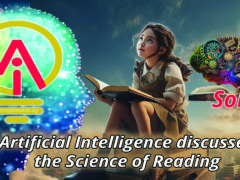
Indeed the established assumptions about the inherent stagnancy of text permanently dictate this offline, strategy-based model of reading instruction.

The difference between “learning to read on paper” and “learning to read on screens” is a very important conversation.
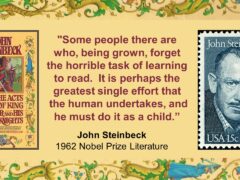
This book is always right next to me when I am working. Every time I see it I am reminded of how it changed my life. It still blows me away. It was about 24 years ago. My then six-year-old daughter and I were at a garage sale on the island of Kauai. I remember […]

Dr. Andrew Johnson is a Reading Specialist and a Distinguished Faculty Scholar and Professor of Literacy at Minnesota State University. I, David Boulton, am a Learning Activist with Learning Stewards. Dr. Johnson and I have very different views about reading and the process of learning to read. We agreed to learn together and respectfully challenge […]
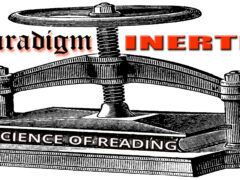
You See What Your Knowledge Tells You To See Paradigms are the mental infrastructures that connect and unify the mental models through which we experience the world. Because paradigms, like religious beliefs, can become so deeply rooted in our identities, they can be very hard to change. Sometimes they are hard to change for scientific […]
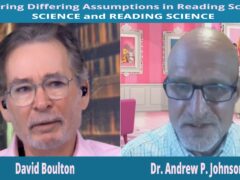
Dr. Andrew Johnson is a Reading Specialist and a Distinguished Faculty Scholar and Professor of Literacy at Minnesota State University. I, David Boulton, am a Learning Activist with Learning Stewards. Dr. Johnson and I have very different views about reading and the process of learning to read. We agreed to learn together and respectfully challenge […]
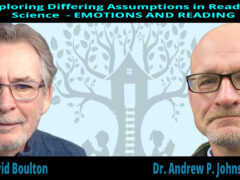
Dr. Andrew Johnson is a Reading Specialist and a Distinguished Faculty Scholar and Professor of Literacy at Minnesota State University. I, David Boulton, am a Learning Activist with Learning Stewards. Dr. Johnson and I have very different views about reading and the process of learning to read. We agreed to learn together and respectfully challenge […]
NAEP (K-12) scores aren’t perfectly accurate measures of grade-level reading proficiency. NAAL (17-year-old and up) scores aren’t perfectly accurate measures of adult literacy. The fact that they are separate assessment systems used to report on very different populations and yet come pretty close to predicting each other suggests they are both in the ballpark and […]
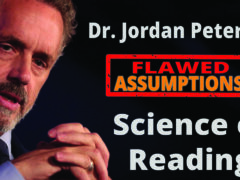
This clip begins with Dr. Peterson suggesting that motivating kids to learn to read is key to improving our educational and societal improvement efforts. He then proceeds to provide an overview of the conventional (Science of Reading) model of teaching reading. The clip ends with the prescient statement: “if the faculties of education were doing […]
